The Entrepreneurial Accountant: The journey to going solo
The truth behind business growth
30 March, 2023
Two guests with experience of running accountancy practices, Mark Telford and James Ashford, reveal what it's really like to grow a business.
What does business growth really look like for accountancy practices?
Mark Telford is a chartered accountant and coach for accountants. And James Ashford is the VP of GoProposal, and author of Selling To Serve and Untapped.
They’ve got lots of experience when it comes to growing businesses and in the episode, they share some top tips to help you grow yours.
Following on from their previous episode, How to find the right clients for your business, check out what they have to say about support networks, getting paid on time, putting yourself first, and much more.
Here’s what they cover:
- Finding and using support networks
- The challenge of being a business owner
- The role of the accountant today
- Working in the business vs on the business
- Here’s why you should set the bar low…
- Direct debit can save time – and help you get paid on time
- Don’t just create content, document what’s happening in your practice
Finding and using support networks
Mike Psaras
Welcome, guys, to the show. How are you?
Mark Telford
Hi, Mike. Yeah, good, thanks.
James Ashford
Yeah, great. Thank you, Mike. Thanks for having us.
Mike Psaras
Thank you so much for being here. I’m excited.
Previously, you sort of briefly touched on, you didn’t have a lot of experience in sales and things like that at the beginning.
When you work in a bigger practice, or you work somewhere else, you have a support team, a network, and infrastructure that supports you in your practice.
I certainly felt when I moved over into working by myself, I found — more in a technical accountancy sort of aspect – how I would second guess myself on quite easy decisions, on things that I would normally take for granted because I could put my head around the corner and go ask the tech guy, or the tax guy, or this, that and the other.
And, James, please get involved in this one.
How would you sort of advise people who are looking to start an accountancy practice, to grow their support network, either before they have started, or once they’ve sort of made the plunge into going solo?
James Ashford
I’m sure Mark will be able to elaborate on this better than I can.
But just a couple of things there, what you said there, in the idea that you see these firms that have been going, what, 50 years, some of the big firms, but they were getting it wrong in year one, and they just repeated it for 50 years.
Like, it’s not 50 years of growth of experience, it’s like 50 years of repeating the same thing, perhaps.
So don’t be put off by these bigger companies. You can be in practice for three years, and be kind of outshining everyone else because you’ve rapidly grown in that time.
And also, I get to see inside lots of big firms as well, and sometimes that support structure you think is there and it’s solid, but perhaps it’s not.
Like, there’s some brilliant firms out there, we’ve got a great community with the GoProposal community, who are very entrepreneurially driven.
We keep it – it’s a closed group, it’s exclusive to GoProposal members, and the energy in that group, and the willingness for everyone to share, is the biggest surprise that everyone gets when they get in there.
They go in and ask a question, and they can’t believe how everyone dives in and supports and helps each other. And I think we’ve been, well, whether it’s by luck, or being blessed, or whatever, but just to attract the right type of firm, and we’re all helping each other, and that’s all we can do.
Throw an arm down and grab other people behind you, and reach a hand up, and get people to pull you up to the next level as well.
There’s enough business out there for the entrepreneurial firms to go and grab.
And I’m a big believer, and I’ve learned this more in the last few years than ever before in my life, is that group of people that you have around you, closest to you, will determine your level of success more than anything else.
And that’s why I like the work that Mark does with the great kind of networks and support groups that Mark sets up. He builds that structure intentionally for those firms.
The challenge of being a business owner
Mike Psaras
That’s great. It’s like open-source accounting kind of work, isn’t it? Like, you can just throw a question out there and get everyone’s sort of interpretation of it.
It sounds like a dream, and certainly something that I would love to get involved in, because I sometimes definitely feel a bit alone in that sense where I have a really good idea I might be 90% sure, anywhere between like 85% to 95% sure, but just before I click the button, I’m overthinking and actually, I’m losing time, because I’m not moving forward.
Yeah, it can be hard. So having those people around you must be an incredible thing.
James Ashford
I think the issue is, when you become an accountant, you’re great at your craft and your skill. You’re not great at business, right?
You don’t know how to recruit, how to train your team, how to price, how to sell, how to market, and all these other things.
And if you’re a builder or a plumber, you can hold your hand up and say, hey, I’ve no idea about this stuff, can you help me?
The problem with being an accountant is that you’re in this professional services business, you think deep down you should know how to run a successful business.
So I think it is harder for accountants to say I have no idea.
Like, an accountant you think would know how to price and sell their services, and how to be profitable, you would think that they’ve been trained that.
But the reality is they’re not trained in how to do that. And they feel afraid to put their hand up.
Mike Psaras
Absolutely. But I think, and by the same token, that that kind of flows into other things.
Like, we don’t know everything about tax. We don’t know everything about inheritance tax, or I don’t know everything about VAT.
And when you’re the expert, it becomes so much harder to say, I don’t actually know the answer to that, you feel kind of a bit rubbish.
And maybe that’s something you overcome with time. I don’t know, Mark, from a technical tax point of view, like how you deal with those instances.
Mark Telford
Yeah, I think it’s really important. And I think this just comes with experience, the realisation that you shouldn’t be in a position to answer every single question a client has when they pose that question to you.
Don’t be expected to know everything.
I’ve got no issue with having a meeting with a prospect and they ask me a question.
If I don’t know, I will say that that’s actually quite a detailed area, and rather than give you a quick answer, which may not be detailed enough for you to make a decision on, what I’d like to do is I’d like to go away, do a little bit more research on it, and give you a full and comprehensive answer.
So I’m quite happy to give somebody that sort of comment.
And you know, if you’re in a discovery call, or that initial meeting with a prospect, and they start firing loads of questions at you and asking you what the answer is, don’t feel obligated to blurt it out.
Say yeah, that’s exactly the type of thing we deal with our clients, and if you were to start working with us, we’d definitely be able to help you that.
The role of the accountant today
Mike Psaras
I love that. It’s a great bit of advice. Thank you for sharing that with us.
What do the two of you see as the role of the accountant in 2022, and beyond?
James Ashford
I think one of the big things is… I guess, building on the answer that Mark just gave before, you don’t need to know all the answers for everything.
Your clients know all the answers, or a lot of the answers, of what they need to do in terms of how they’re going to grow their business.
You’re sat in the chair next to them, they’re the ones with their hands on the steering wheel and guiding, you know, moving things forward.
And you’re there to help them and give them information to make better decisions.
To my mind, one of the big roles of the accountant is holding your clients to account for what they said they would do.
So if you’re working with them closely in a board meeting and they say this is what they’re going to do by next month, it’s being that person who’s going to ask those difficult questions.
Like, why haven’t we hit this?
Why haven’t you got that number?
What is the target you want to achieve this year?
And to then hold them to account for achieving that.
Because to my mind, the role of the accountant is broadening, and it will continue to broaden in the sense that, you know, we’ve got advisory, whatever that actually means, and there’s some debate around that as well.
But like, moving forward, businesses are going to be expected to account for their carbon footprint as well.
Well, does that now sit under the role of the accountant?
Because you could argue, well, they have to account to a governing body for metrics within their business.
So does that sit with the role of the accountant because they’re accounting for the actions and activities of that business?
So I think it’s very interesting, but that is my kind of short answer, is to hold your clients to account.
Mike Psaras
Yeah, definitely. And the sustainability thing, the carbon footprint, we are as accountants, the sort of gatekeeper of a lot of information that will have to be reported. So yeah, as you say, it’s definitely broadening.
Definitely an interesting time to be in accounting, because there are so many things that we get called upon.
In a previous episode, a few months ago, we were talking about just being an advisor on what tech stack to implement for a business.
So having to know, like, what’s out there, what’s suitable for this particular accountant, how to implement it, how to get them trained on it, and how to keep it sort of running in their business, and make sure there are no issues with what you’ve sort of advised on, is probably going to be a job in and of itself.
And I don’t know, if, Mark, you’ve had any experience with that kind of thing, people asking you those types of questions.
Mark Telford
I think it goes broader than that, Mike.
Quite often, accountants are reluctant to get involved in certain areas of a business because they don’t know how to do something.
So for example, let’s say you’ve got a client, and their sales have fallen off a cliff. Now, they’ve got no money coming in, they’re really struggling.
The accountant knows they need to do something, but they’re reluctant to help the business owner because they don’t know what to do.
But going back to James’s point, you don’t need to know what to do.
You need to ask the right questions to work – to get the client to work out what they’re going to do. And then the next time you see them, you ask them if they did it.
Did they do it? No. Why not? It wasn’t the right thing. Right, what’s the right thing to do? Are you going to do that? Yeah. Right, okay, let’s report on that in 30 days or whatever it may be.
It’s profit improvement, cash flow management, reducing costs. The accountant doesn’t have to do it, but they can explain to the client – if you do it, this is what impact it will have on your business.
Now, if you go to do it, what do you need to do to make it happen? It’s that accountability.
So it’s measure, review, so a set of accounts, a management report meeting, measure, review, and improve.
You set some goals and actions for the next month, 90 days, then you just keep moving on like that.
Mike Psaras
Yeah, for sure.
James Ashford
And do you know what as well? Like, if I think back to our journey with GoProposal and the work that my accountancy plays, was they were very aware of what I wanted to achieve personally as well.
And the more you can ask about that, what a client wants to achieve personally, the more value you can unlock, because your value as an accountant is directly proportional to the size of the problems that you can solve.
So they knew that we wanted Becky to leave employment, or to buy a house closer to the kids’ school, and we wanted to book a holiday to Lapland one of the years, right?
So not only were they holding us to account for what we were doing in our business, but they were like, has Becky put a notice in yet? Where are you with that house move? Have you got the house? Have you booked the holiday to Lapland yet? Why not?
I remember Paul ringing me up, giving me grief, saying why haven’t you booked the holiday?
Why are we doing what we’re doing if it’s not to have great experiences with your kids. Ring me back and tell me when you’ve got the holiday booked to Lapland.
And like… I seem to think we had had a couple of drinks when he had that conversation with me.
But I remember ringing Becky up and saying get the holiday booked now and ring me back as soon as it’s done.
But it is holding them to account to help them to make the right decisions to move them forward not only in their business, but personally as well, because that’s what the business is there to do.
Working in the business vs on the business
Mike Psaras
Yeah, 100%. So holding them accountable. But it’s like a holistic job now, like it transcends the business in and of itself.
It’s helping the directors, the business owners, shareholders, to achieve their dreams, and their goals, and their ambitions.
I mean, to me, this sounds very different from the traditional accountant, what we were doing, well, what people have been doing over the past 20, 30 years.
Like, those days are sort of gone, and it’s a new breed of accountant that’s kind of…
We’re talking, like, time is infinite, we’ve got all the time in the world to help our clients with everything that they need. Just tell us what you need and we’ll sort it out for you.
In reality, time is finite. Sometimes we’re working by ourselves in our office, we might take on a lot of work, we have our best intentions to work, and sometimes we feel overwhelmed.
We are swamped at work, getting calls left, right and centre. And just basically keeping our head above the water.
So in that sense, the kind of working in the business takes precedence. And the bit about working on the business falls by the wayside, and I think over a number of months, years, we can quite quickly just lose track of the direction that we wanted to go in.
Maybe, and again, that’s because we’re not in the habit of working on the business.
How do you guys suggest that people can kind of find time, carve out some time to just actually work on the business and improving that aspect, rather than purely focusing on delivering, delivering, delivering?
Mark Telford
I think first off, Mike, I don’t really like this distinction between working in the business and working on the business.
I think essentially you’ve got a business and you’ve got to plan, you’ve got to then deliver. You’ve then got to review and improve.
So it should all be wrapped up in that. There should be different elements in what you do that fit into all of that.
So if I go back to the start, you know, I didn’t do enough planning. You know, 100%, didn’t do enough planning, so to then go out and win work, we can deliver work, and I’d be thinking, there’s some bits we haven’t done here, right?
We need to change what we’re doing here. What do we need to change? And how are we going to do it?
So that was just part of the process.
It was continual, just continual reviewing and improving, changing.
And if I even look back to the last six months, we’ve had more change in the last six months than probably the previous five years, just in terms of what we do, because it’s just about improving.
And I think if you ever get into a situation where you’re just processing, you’re not going to improve because you’re not giving yourself the time to look to see how you can improve everything.
And something that was said to me probably about four or five years ago, and I use it as a bit of a mantra now, is you need to hire before you need to.
And this is this idea, before you reach capacity, you need to hire a new team member, because once you hit capacity, it’s too late to get somebody else on board because that’s when you are in that trap of you’re too busy doing the work to be able to work on the business, so to speak.
So I think what you need to do is you just need to find the time in your week and your month.
If I look at what we do now, Monday mornings, for me, are all planning. I have team meetings, I have a review to see what we’re going to be doing for the work week ahead.
So we’ve got these weekly tactical meetings, then we have a monthly strategic meeting with the client managers, all focused on what we’re going to be looking to do.
So, we’ve got a really clear strategy, what we’re doing for the next 12 months. So the tactical side, goals, and the actions that follow behind that, they’re all aligned to that strategy that we’ve got for the next 12 months.
Mike Psaras
And how do you think that that translates to a sole practitioner? How would they sort of go about it? Because obviously, you’re talking about it with, you know, your managers, staff.
If you’re by yourself, how would you still carve out that same amount of time?
Mark Telford
Yeah, you still need that time, and it may be that support circle that you spoke about at the start.
There might be another business owner, or another accountant that you know, or a group, it could be online.
So like James said, the GoProposal Facebook group is fantastic. And I would say that’s the sort of development that’s happened over the last four or five years, really, that is completely different to when I started my practice, because there wasn’t anything like that around.
And that really allows people to fast-track getting their business to where they want it to be.
I’d even be inclined to say, sign up and subscribe to GoProposal even before you start your practice, so you can get in that Facebook group.
Mike Psaras
Yeah, for sure. For sure. I think that’s probably what I’m gonna do after this. James, you shared a really lovely anecdote once about a lumberjack. Do you remember it?
James Ashford
I do remember it, yeah. It’s my story. I have stolen it. Any good stories I tell, be fully aware I will have stolen it from someone else. I try to give people credit.
But it’s, yeah, two woodcutters, cutting wood all day long, and one of them keeps taking breaks, and the other just chops wood all day.
And every single day, the guy that keeps taking breaks has got a far bigger pile of wood. And this goes on for months.
And eventually the guy who’s not achieving as much says to the guy who keeps taking breaks, how do you keep chopping more wood than me every single day? You’re taking these breaks, and I’m just working flat out.
And the guy says I’m not taking breaks, I’m sharpening my axe.
And taking time out of your business to work on your business – I get Mark’s phrase, I can get Mark’s thinking about that – is it’s time to sharpen your axe. You can move things forward.
But what I would say is above and beyond working on your business, or working in your business, is working on yourself, is the biggest thing to work on.
So in my book, Untapped, so I took 100 firms last year, and I worked with them over the space of 30 days, and within 30 days, I got them all to increase their revenue by over a million pounds in ARR (annual recurring revenue), from existing clients alone, largely for the same work they were already doing.
So I worked with them for 30 days. And the biggest piece of work I did in them 30 days was working on them, getting them to challenge their thinking. Because the way that we price, the way that we value ourselves, our relationship to money is hardwired into us from being a young age, right?
So there’s so much unpicking and thinking that we have to do.
The technicalities of how do you price and sell.
Well, you need a price list. Well, I can give you one of them through GoProposal. I can figure it out for you, how you should be charging. I can give you the exact pricing matrix to use.
It takes me three minutes.
Within an hour of signing up for GoProposal, I’ll show you how to go and sell it to the client.
However, if in your head, you’re thinking yeah, but there’s no way I can sit in front of someone who’s paying £975 a year, and start charging them £25k a year.
If you think you can’t give that value, and there’s no way you can have that conversation, then it doesn’t matter what I give you.
So you have to work on yourself more. It’s the biggest thing.
And it’s something that will never ever end. It’s a continual thing from now on and forevermore.
And that was – if I look back for me – that was my breakthrough when I started working on me, and my journey that I went on.
Here’s why you should set the bar low…
Mike Psaras
That’s it. Yeah, it’s really true, because it is all about your mindset, and you’re only limiting yourself with your thoughts.
I reckon that probably for a lot of people listening to this, it’s something that they would really love to work on.
And yeah, let’s start with the community, I guess, and just see what everybody else is doing, because I think that’s really inspirational.
But then the rest of it is about making things a habit, and making things continual and consistent so that you can see, and once you start seeing the results, it kind of builds confidence, I think, right?
James Ashford
Yeah, definitely.
And one thing I say is set the bar low. Like, people say set the bar high.
Set the bar low.
Because by setting the bar low, what you fundamentally do is change your trajectory that you’re on. You’re either getting better or you’re getting worse, you’re not staying the same.
So you’re either heading down or you’re heading up, and by setting the bar low, you know, increasing the client’s fee by £11 a month, yeah, rather than discounting it by £5 a month, may not change the world, but it changes your trajectory. And then you have the next conversation and the next one. So you’ve got to get on with it.
And I love what Mark does, and I love Mark championing things in the community. Whenever Mark weighed in on a conversation, I know it’s going to be heading in the right direction.
There’s a big thread I’ve started recently about should you charge for onboarding? Should you charge an onboarding fee?
And I believe you should. And that could be upwards of £500 to onboard a client.
Everyone’s saying you can’t do that, it’s unethical, you’ll lose your clients, and Mark’s wading in, going, why? Why? Do you think you’ll lose clients, why can’t you charge for it?
And so we’re exploring that now as a community to say can it be done, why would it be done, and what’s the right way to do it?
And that’s really exciting.
Direct debit can save time – and help you get paid on time
Mike Psaras
Yeah, I think it’s wonderful. It’s really, really good. And it’s good that you’re challenging all the sort of stereotypes as well of what should be done, and exploring things like ethics, and what’s right and what’s wrong. It’s really cool.
I mean, as I keep saying it, but I really, really want to get involved in it. So I will do.
But obviously, I’m conscious of time, because you guys need to head off.
So what was the fastest lesson that you learnt when you started your business?
Mark Telford
Get clients paying by direct debit.
Mike Psaras
Straight up. Get them rolling, get that money coming in. Yeah, yeah.
James Ashford
And the other thing that Mark said, as well, just to back up what Mark said was that when he first started, he was trying to replace his salary.
So he wasn’t putting his clients at the centre. He put himself at the centre, which is the exact right thing to do.
The only thing really unique, truly unique about Mark’s accounting business, it’s the only business or one of the only businesses designed to give him the life that he wants – and he recognised that early on.
And so he built the business around giving him the life he wants, which is the right way to go about it.
And I think the moment, so to my mind, the priority is you.
The second priority is your team. And the third priority is your clients.
And if you get the order wrong, then you will build a business that won’t be able to serve the clients as much as you want to.
Don’t just create content, document what’s happening in your practice
Mike Psaras
Yeah, I think we’re definitely sort of fed the narrative that the client comes first. And that’s how we end up with overwhelm and stress and tiredness and scope creep, and all of these kinds of things.
James, I know you’ve had a number of businesses, but what’s the quickest lesson that you learned? It doesn’t have to be accountancy related.
James Ashford
Well, if I think about GoProposal, and how we were able to scale that with no investment, you know, in a challenging industry with fierce competition was just share everything, just give it all away.
Like, we, throughout social media, you will see us post on a daily basis.
And it’s not this idea of producing content. It’s the idea of just documenting what’s happening.
Every single accountancy firm on here, you’ll be helping several clients today, whether it’s on a phone call, on an email, or whatever.
You’ve given some advice, you’ve helped people. Well, why aren’t you then sharing that same advice wider?
Obviously, you can’t say this is what you should do. You can’t instruct people because you don’t know their circumstances.
But you can share anecdotes of how you’ve helped someone else today with the same question, for example, and not to do it to my mind is selfish.
So my big thing is give it all away. Knowledge has no value.
Just because, you know, if you give it away, the right clients are not going to go and take that and do it themselves. Yeah?
They’re going to still need to come to you to get that to help them to take the actions that’s needed.
So yeah, just share and help as many people as possible. And social platforms allow you to do that.
Mike Psaras
For sure. And karma will come back around, right?
James Ashford
But you know what, if it doesn’t, you can’t help, you can’t get 99% away thinking that 1%, if you want it to come back. It has to be 100%.
You have to give it away with no expectation. And then like you say, hopefully karma lands.
Mike Psaras
I completely agree. Guys, it’s been an absolute honour having you on the show. I’m so pleased that you’ve managed to do this. Thanks for sharing all this amazing insight. I’m sure everybody’s going to be so excited to listen to it and kind of propel their businesses forward. And I certainly am. I’m feeling great. And yeah, I hope you guys enjoyed your time.
Mark Telford
Yeah, it was great. Thanks for having us, Mike.
James Ashford
Thank you, Mike.
And people who aren’t who aren’t following Mark, I would just encourage you to follow him if you’re in this space, just someone that I really respect in this space, doing great things, championing it, challenging, championing.
#JFDI is his most common hashtag that he puts on most threads, but he’s absolutely right. You’ve got to, yeah, you’ll figure that out, Mike.
Mike Psaras
Yeah, got it.
James Ashford
You’ve got to make decisions and get on with it and do it. So what I love about what Mark’s doing is just championing, you know, actions, doing incredible things in his own firm as he’s illustrated here, while supporting and helping many other firms do that as well.
So just applaud you for doing that, Mark.
Mark Telford
Yeah, thanks, James.
Mike Psaras
Nice one, guys. Thank you so, so much. I’ll leave you to go on to your next meetings and/or enjoy the weather, whatever you’re doing this afternoon.
Mark Telford
School run.
James Ashford
Yeah, school runs. Thank you.
Mike Psaras
That’s coming up for me soon, I tell ya.
To make sure you catch every episode, subscribe to the channel or sign up to the Sage Advice newsletter at the bottom of the page.
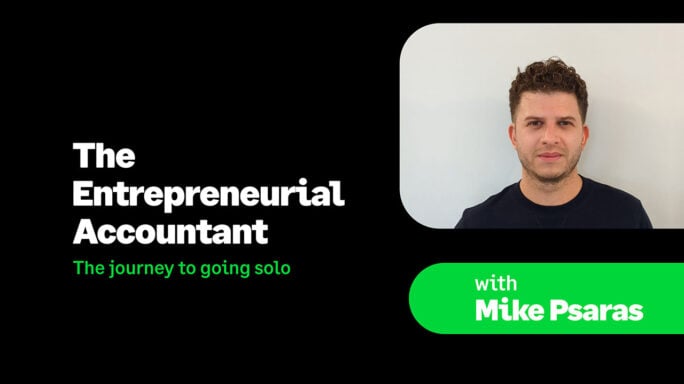
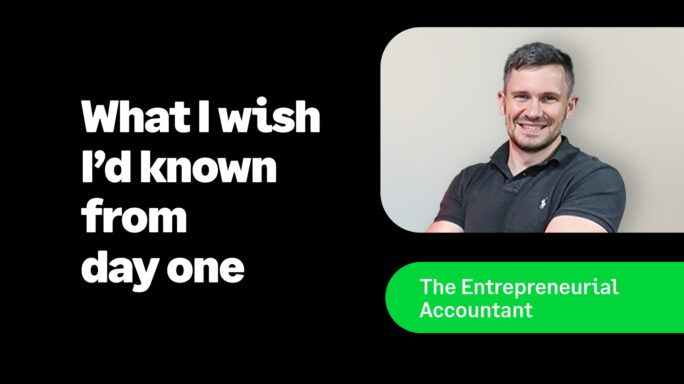
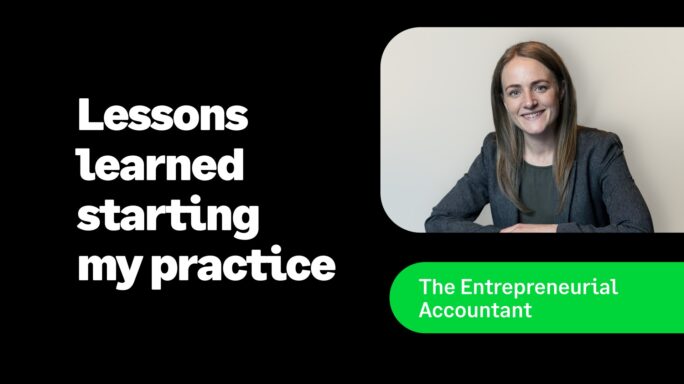
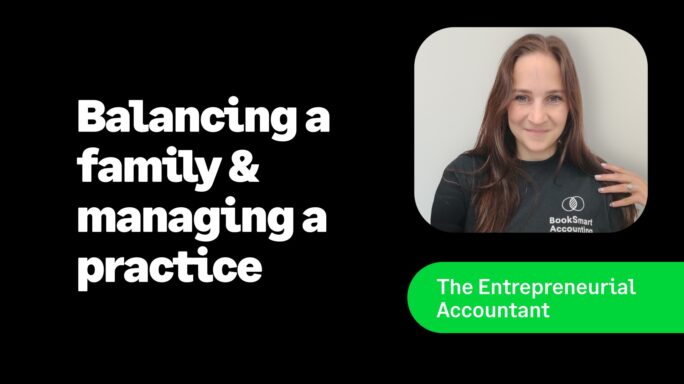
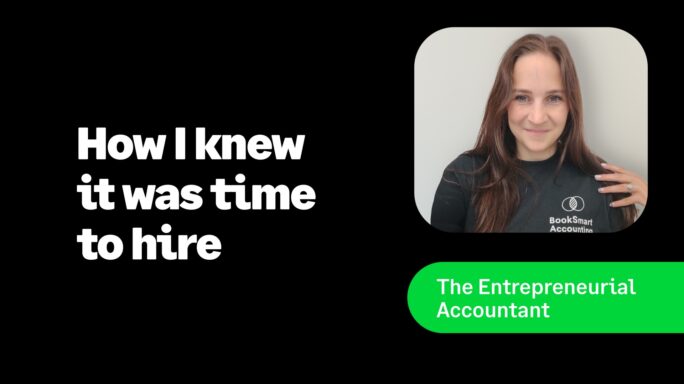
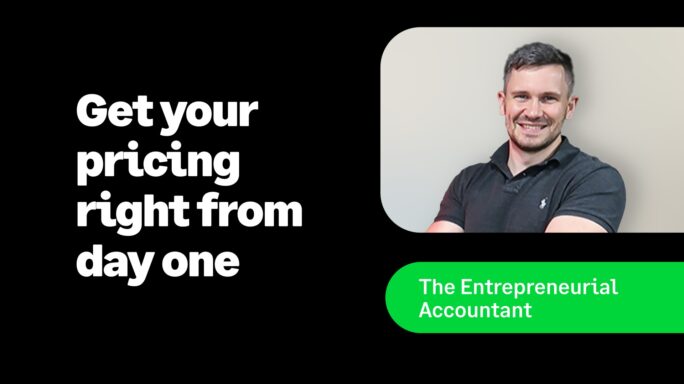
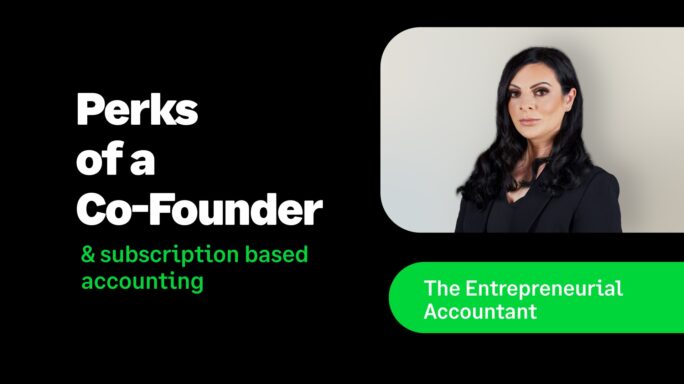
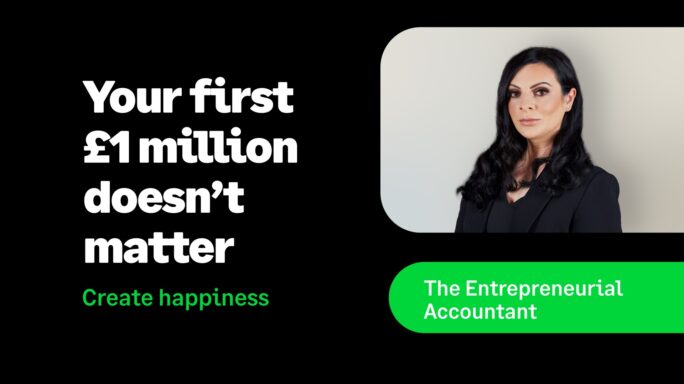
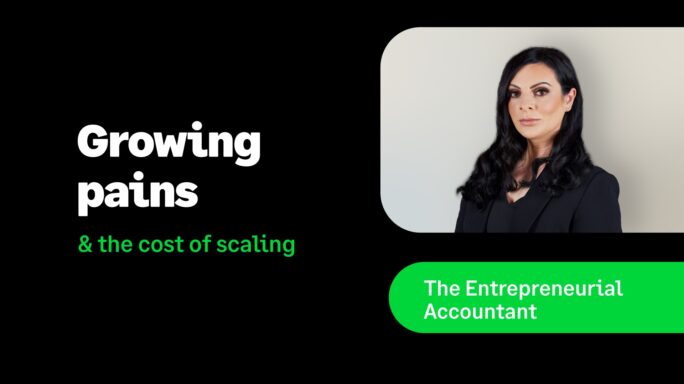
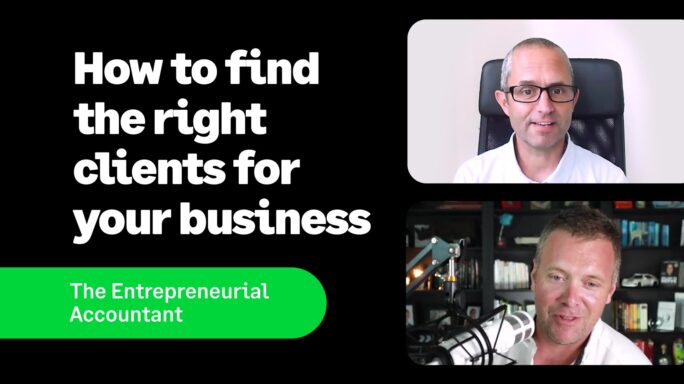
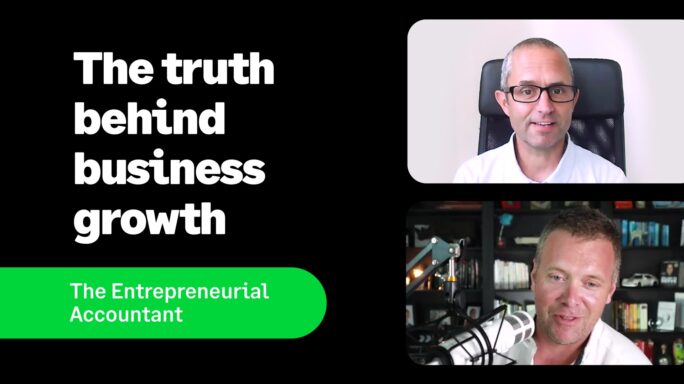
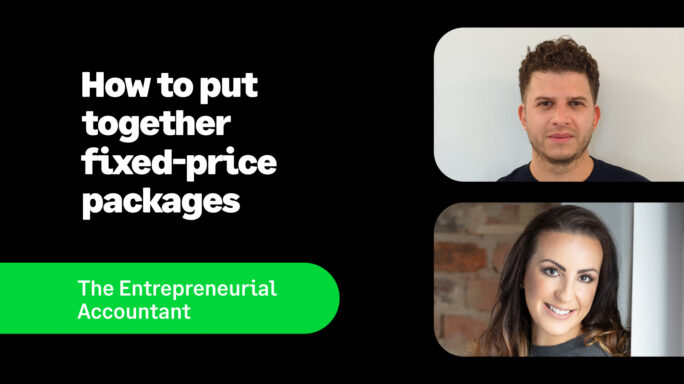
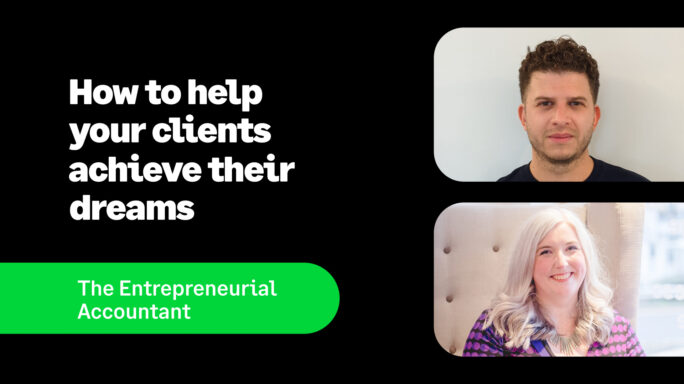
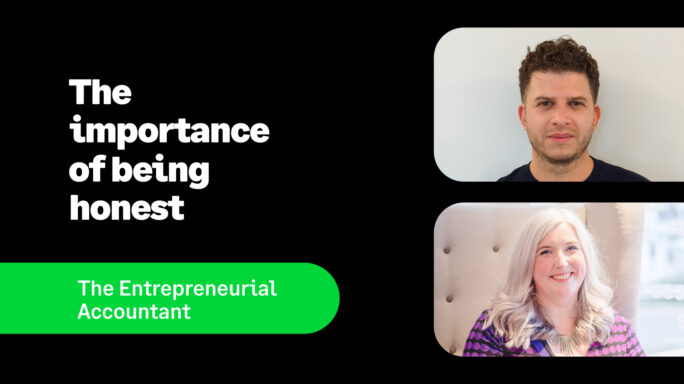
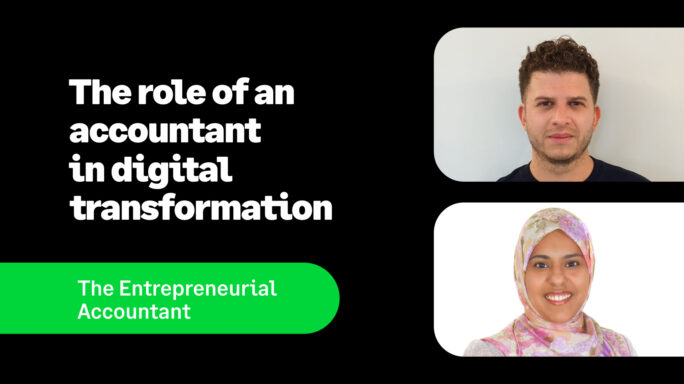
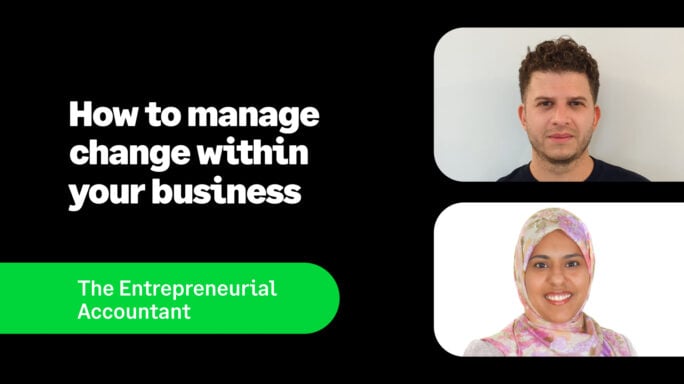
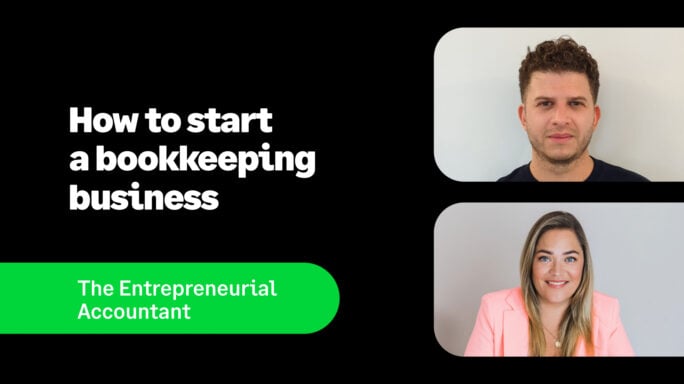
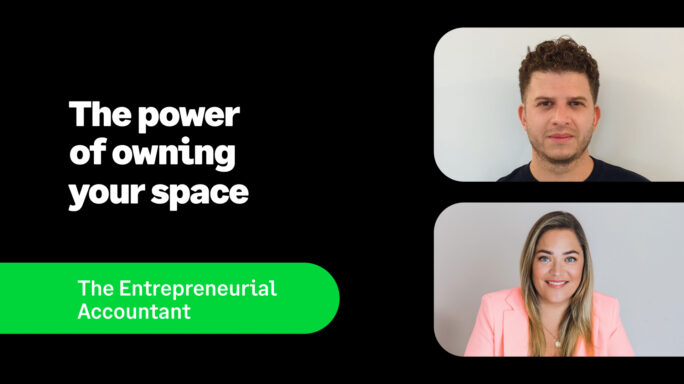


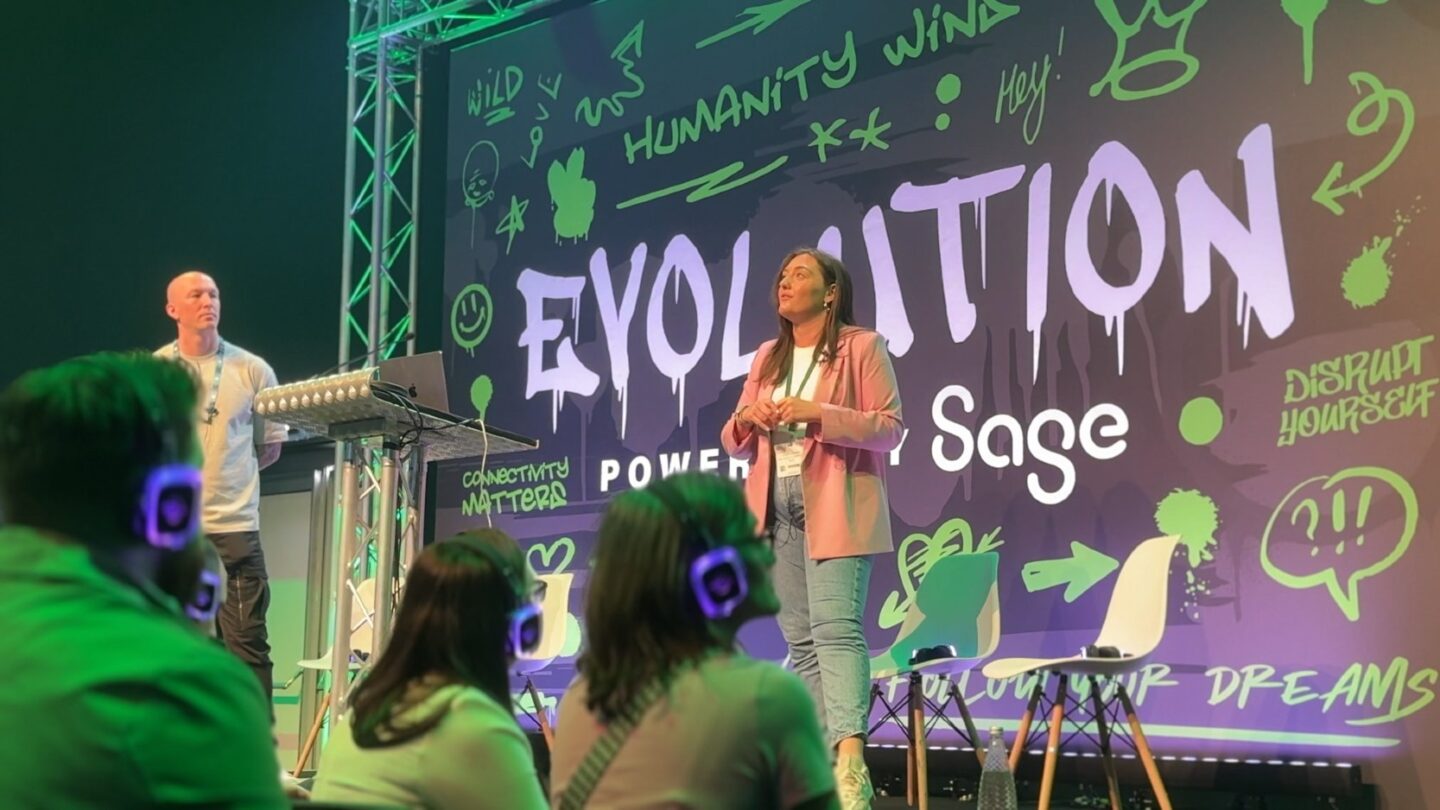




Comment below